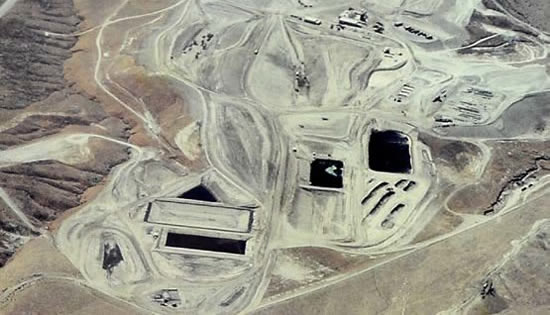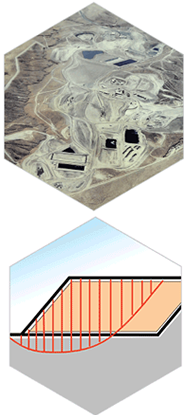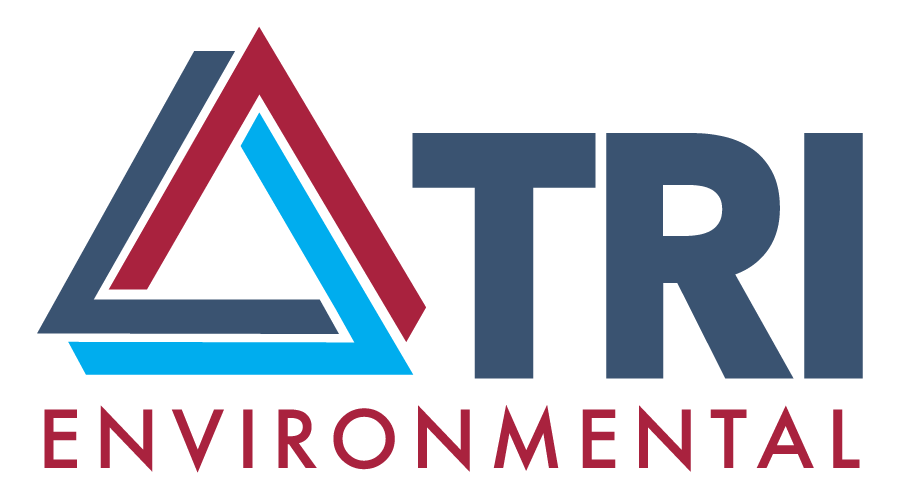
 TRI Environmental is proud to announce that Richard Thiel, PE (Thiel Engineering) will co-teach the next virtual workshop on Interface Friction / Direct Shear and Slope Stability Issues. Thiel and Dr. Jeffrey Kuhn, PE (TRI Environmental) will present the live, online workshop September 10 – 11 from 10:00 am – 3:30 pm (US Central time) each day.
TRI Environmental is proud to announce that Richard Thiel, PE (Thiel Engineering) will co-teach the next virtual workshop on Interface Friction / Direct Shear and Slope Stability Issues. Thiel and Dr. Jeffrey Kuhn, PE (TRI Environmental) will present the live, online workshop September 10 – 11 from 10:00 am – 3:30 pm (US Central time) each day.
Attendees will learn:
- Why slope failures occur
- How to determine and use shear strength
- The history of interface friction testing
- What’s the reliability of published shear data
- Understanding ASTM D5321, D6243, and D7702 – friction testing and guide
- The “ins” and “outs” of interface friction testing
- How to avoid meaningless/unresponsive test data
- How to specify a relevant interface friction test
- How to specify and review results of friction tests
- How to avoid failures…..lessons learned
Details on schedule and cost are below.
WHY THIS COURSE
The stability of landfills and leach pads is becoming more important with each new project failure and the increasingly difficult terrain of some sites. Shear strength of geosynthetic interfaces is one of the primary, and more contentious, variables used in stability analysis. The continued growth of the geosynthetics industry has led to a constant influx of professionals working in waste facility design and slope stability evaluation for the first time. These engineers, together with geomembrane and geosynthetic clay liner (GCL) manufacturers, have long complained of the difficulty in achieving good, reliable interface strength parameters.
The standard test method for the evaluation of friction between geosynthetics and geosynthetics, or geosynthetics and soil, is ASTM D 5321, large scale direct shear test for geosynthetics, and ASTM D 6243 for GCLs. While these tests are simple in concept, the generated test results are significantly affected by the test parameters defined and the procedures used. As a result, understanding the specification of interface friction testing and how to interpret and use generated test results has become a crucial part of an engineer’s job. In fact, the cost for not understanding ASTM D 5321 and D 6243 tests and test data can be enormous. Unfortunately, the waste industry has several examples of this cost.
This course had been specifically targeted to those persons who have a need to understand and specify interface friction/direct shear tests, and use generated results in subsequent design. These persons include:
- Design/Certifying Engineers
- Construction/Quality Assurance Project Managers
- Manufacturers
- Installers
- Third Party Inspectors
- Regulators
This course will be presented in two parts, each complementing the other to provide maximum benefit. The first will focus on the designer’s use of interface strength including sources of interface strength, peak vs residual strength, normal stress and failure envelopes, friction angle, adhesion and slope stability calculations. Included will be detailed forensic analysis of several slope failures.
The second part of the short course will provide a detailed explanation of ASTM D 5321, including detailed discussion of test parameters. Procedural implications of specimen anchorage, normal stress application, machine friction and calibration, rate of shear and reporting mechanisms will be evaluated. In addition, limitations of the D 5321 test will be explored, with explanation of alternative tests including torsional shear, tilt table and double interface shear. Special emphasis will be placed on specifying a meaningful shear test that will best serve the user.
COURSE SCHEDULE
September 10, 2024
All Times United States Central Time Zone / GMT-06:00
10:00 Welcome and Why
10:30 Overview of Materials, Stress, and Environment
11:00 Background – Shear Strength and Slope Stability Concepts
11:30 Bottom Linear Stability and Strain Softening Concepts
12:30 Break
1:00 Bottom Liner Interface Shear Testing
2:00 Veneer Stability
3:00 Veneer Interface Shear Testing
3:30 Open Discussion and First Day Closing
Wednesday, September 11, 2024
All Times United States Central Time Zone / GMT-06:00
10:00 Welcome and Recap Quiz
10:30 Reliability and Risk
10:50 Seismic Stability
11:30 Internal Shear Strength of GCL, GC, and Soil
12:30 Break
1:00 Evaluation of Test Results
2:00 Clear Specifications and Test Prescription
2:30 Challenging Specifications and Test Prescription
3:10 3rd Party Lab Conclusions and Recommendations
3:20 Designer and CQA Conclusions and Recommendations
3:30 Open Discussion and Closing
THE INSTRUCTORS
Richard Thiel, PE is President of Thiel Engineering. He is an engineer with 30+ years experience specializing in containment design applications for geotechnical projects, waste containment, secondary containment of fuel, and leach mining applications. He has participated extensively in the feasibility evaluation, permitting, design, and construction of waste facilities and surface impoundments. He is experienced at being an expert witness, performing design peer reviews, economic evaluations, failure analyses, design of liner systems with soils and geosynthetics, leachate management systems including pipelines an pump stations, geotechnical site reconnaissance and resource investigation programs, construction quality assurance (CQA), and assistance in developing state solid waste regulations. He is currently the instructor for the ASCE seminars on containment liner and cover systems design, as well as other courses related to geosynthetics and liner system design. Before his specialization in containment system design, Mr. Thiel participated in the design of several large rock-fill clay-core dams.
Jeffrey Kuhn, PhD, PE is the Executive Director for TRI Environmental, Inc. His doctoral work principally focused on alternative/evapotraspirative cover design and evaluation for the EPA, and he performed research with expansive clays for the Texas Department of Transportation (TxDOT). Prior to joining TRI, he served as a consulting engineer, where he worked on the design and installation of the Circuit of the Americas Formula One Race Track over expansive clays with tight differential movement criteria. Since 2012, he’s led the expansion of TRI’s geotechnical laboratory capabilities and reach within the geotechnical community.
COST
* Commercial Rate: $600/person
* Government Rate: $195/person
Commercial entities save 10% on 2 or more registrations in a single transaction.
ABOUT TRI
TRI Environmental, Inc. (TRI) is a full-service independent laboratory serving a variety of related polymer-centric industries around the world. At our core is a deep understanding of geosynthetic materials and the characteristics critical to performance. TRI tests, certifies, performs research, develops equipment and provides consulting on geosynthetic materials used in civil, environmental and geotechnical engineering as well as protective clothing.
Materials including geomembranes, geosynthetic clay liners, geotextiles, geogrids, geocells, plastic pipe, rolled erosion control products, protective clothing and the like have been tested by TRI for over three decades. However, our knowledge and understanding goes deeper than just testing… TRI performs research, develops test equipment, develops standards and provides education for each of the industries it serves.
TRI’s personnel are active throughout the world’s standards development organizations and routinely provide short courses, seminars and tailor-made training services.
TRI is unaffiliated with any manufacturer or engineering firm, and thus provides services to regulators, manufacturer, engineering firms, contractors and installers. Laboratories perform testing in accordance with ASTM, ISO, BS, DIN and GRI test methods. TRI is GAI-LAP & ISO 17025 Accredited and is an official provider of testing services to NTPEP, USACE, AASHTO and other government and regulatory agencies.
Learn more about the September 10 – 11 workshop and and register online:

